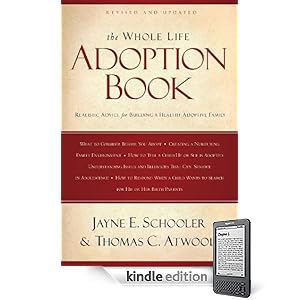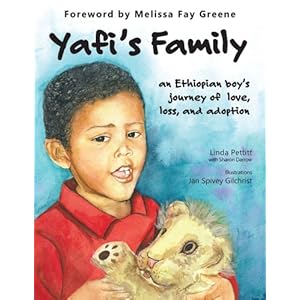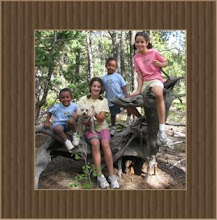I have had a lot of people ask about adopting kids who are older than baby age. And about attachment issues with kids who adopted in Ethiopia. I have replied with various thoughts, but today on one of the yahoo groups I am on (CAFEKids) there was the most excellent post on this very topic. Kelli Denman replied to this question with ALL the things I have thought of and mentioned in various ways, and she said it soooooo well. I asked her permission to post this here to help others as they decide what is best for their family regarding older child adoption and considering Ethiopia.
The question being answered was about attachment issues and older kids from Ethiopia in particular.
Thank you Kelli for allowing me to post your comments here.
From Kelli Denman:
Here's my unofficial take on this - these kids are usually (not always) cared for by parents/relatives until the parents/caregivers die or can no longer feed the child. So the formative years for attachment - birth to 3 - there was usually the mom or close caregiver. Once that bond has been established, it is easier for that child to bond again, whereas a child that never had that bond may be unable to completely bond. Ever. That goes against what some believe, but as a former foster parent of a RAD child, I had lots of training and did lots of research. The physical synapses were not formed and the child may be incapable of remapping their brain. But there's no way to know, so I guess it really doesn't matter.
Now in some cases these kids were on the streets from a very young age - I can think of a referral of an 18 mo old who was living with 4 & 5 yr old kids on the street - that one's a big, big red flag for attachment issues.
The best bet to reduce chances of RAD or permanent attachment issues (all children will have some attachment issues, because of their trauma, some may attach to everyone they see and others may fight attachment, but it's not a permanent thing) is to know the circumstances of the child's history. The longer the child was in an orphanage, the higher the risk. The younger the child was when going into the orphanage, the higher the risk.
We chose waiting children for that reason, after a yr of foster parenting a RAD child, I knew that was some place we didn't want to go again by choice. Not that we wouldn't have that happen, but the risk was lesser. Our boys were raised by their mom until they were placed in the orphanage, were there for nearly a yr. As far as we can tell, they were cared for by their mom and loved and had no abuse.
But, there's never a guarantee. If you have the resources in place, if you plan for the worst and hope for the best, then that's all you can do if you're willing to take a risk. And there will be issues with your special needs child, because that child is more fragile. I have a special needs kid too, and that was one of our worries and why we went with younger or same age as him (turned out one is older by a yr).
Why is ET different? Well, in Russia there's a higher incidence of RAD for two major reasons - (a) fetal alcohol syndrome is high in Russia and that's another cause for RAD and (b) the children are not well cared for in many orphanages there, spend years languishing. In China they have changed the way they do things so much there that the children have, in many instances, 1 nanny to 3 babies - it's better than being in their crib or tied to a potty chair all day, but that does still happen in smaller orphanages. Again, the babies are abandoned as babies so they need to form that bond at the orphanage.
Besides RAD, be sure to think about predatory children. You have lots of young ones in your house and there can be such a thing as a predatory 5 yr old who preys on younger and older children. Be sure you know the signs, the symptoms, ways to safeguard your existing children, etc. Make sure it's something you'd want to help a child thru if they'd been abused in the past. Make sure you have access to adoption counselors, therapists.
You not only have one child who's at high risk for being abused, all of your kids are at high risk because of their ages, even if the sibling is younger. While your heart is in the right place, be SURE that you are first protecting the children you have in your home.
You already have a special needs child that requires extra attention, adopting two children at once can be extremely challenging, even if they are siblings. You have lots of bonding and attachment things to do even if they have little to no bonding issues, it's still a process that requires time and energy and focus on the one child, seemingly to leaving out the other children (but it must be done, one on one, with the new child). Do you have the time, energy and resources right now to do this? I'm not questioning your ability, just making sure you are working with your head as well as your heart. :)
I am by no means trying to discourage you or anyone else from adopting. But I have seen people rush in with their hearts and to the detriment of the children they adopt, are not prepared for the possibilities. If you are prepared, are willing to trust God that He will get you thru whatever lies ahead - then go for it. If the worst case scenario happens - God has a plan. Trust it. If it doesn't, God had a plan. Trust it.
And to also think about regular childhood issues, personalities. For me, THAT was the biggest challenge. I went from one quiet, plays by himself boy to 3 noisy, wild, all-boy boys who love to test the boundaries and love to take things apart and see how they work. no attachment problems, no real behavior issues, but 3 boys are, wow, they are tough! We were prepared for the "other" stuff, we weren't (or I wasn't) prepared for the "regular stuff" of boys tackling each other, putting mud in their hair, etc. I should have spent some time with someone else's 3 boys to get a clue of what i was in for. :)
Kelli
Book resources:
Toddler Adoption, the Weaver's Craft we have read this one and it was very helpful
Parenting your adopted older child
Our own: adopting an older child
Older Child Adoption
Blogs of other families who have adopted "older" and truly older kids:
Choosing to Follow
A Bushel and a Peck
On line resources:
http://www.thelaboroflove.com/articles/adopting-an-older-child-pros-and-cons/
http://www.ehow.com/older-adoption/






















































